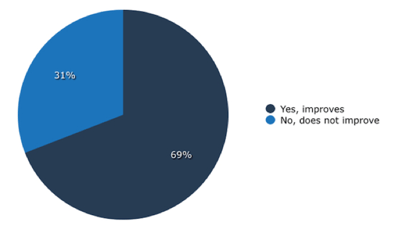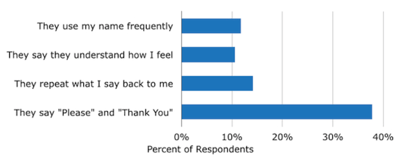What makes a great movie? Good actors, beautiful sets? More often than not, it starts with a great script. Characters written in a specific way, with specific words in order to deliver a specific message. But without decent actors, the right setting, or even the right props, the true message meant by the author will never be conveyed. The same can be said on some level for the world of call center scripting. You can have a dynamic, polite, and informative script, but if your agents lack the skills or resources to deliver it as intended or to in a sense “read between the lines,” the overall effect will be merely a mediocre movie. So what tools can you give your agents to ensure that they are delivering the script as intended?
1) Proper routing - Is the right agent getting the right calls?
You may have a wonderfully written polite script, but if the caller has to repeat information that they have already given, chances are all of that politeness you have spent hours crafting into your agent’s script will go right out the window. In fact, according to a 2013 survey completed by Software Advice, 69% of callers prefer unscripted calls altogether.
 With skills based routing, calls will be routed to agents who have both the ability to solve the problem, and the expertise to be able to do so efficiently without having to rely solely on a script. Frustration one of consumers is often simply getting to a live person that can help them, don’t make them listen to a robot who can’t help them once they get there.
With skills based routing, calls will be routed to agents who have both the ability to solve the problem, and the expertise to be able to do so efficiently without having to rely solely on a script. Frustration one of consumers is often simply getting to a live person that can help them, don’t make them listen to a robot who can’t help them once they get there.
2) CRM integration: Populating customer history.
Customers not only complain about not being able to get to live agents, but they feel often that agents don’t care about their specific needs. In fact, research shows that 70% of buying experiences are based on how the customer feels they are being treated. In a generation of instant gratification, customer’s not only want their problem solved effectively, but want to feel as though by taking the time to call, they are entitled to personalized treatment. Give your agents the chance to succeed in personalizing the call before the call is even connected by giving them the history of the customer. An agent will receive customer information from your CRM that will show not only the name of the customer, but important details about their account. The more information the rep has, the more they are able to customize the call to the customer’s particular needs.
3) Dynamic call center scripts
While CRM integration can provide key details about an account, the call can take on an extra level of personalization when accompanied by dynamic scripting.
Instead of blankly reading a script: Thank you for calling XYZ company, the agent starts with a more personal tone: “Good afternoon, Lisa, thank you so much for calling. How can I help you adjust your order?” Based on future inputs, this personalized tone continues throughout the call, and additional information is pushed to the agent to assist them with the specific need of the customer based on what they are telling the agent.
4) Customer Sensitivity Training aka Reading Between the Lines
In the same survey completed by Software Advice, just simply saying a customer’s name is not enough. Much like populated letters that are mailed out, consumers don’t tend to see this simple feature as personalization.

The simple word choice of Please and Thank you makes the customer feel more cared about. This can be chalked up to manners, but as pointed out in this survey study, often those types of words are not written into scripts and simply come from the agent themselves. Here are a few more tips to increase the level of personalization that is craved by today’s consumers.
The combination of technology features can be powerful, but used to enhance personalization, they can also make the difference between good customer service and great customer service.




